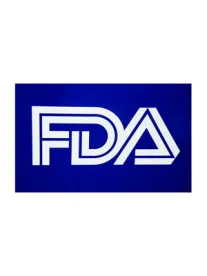On June 5, 2015, the Food and Drug Administration (FDA) announced the publication of its Draft Guidance on its Voluntary Qualified Importer Program (VQIP). The FDA is establishing VQIP to enable the expedited review and importation of food for humans or animals from importers who achieve and maintain a high level of control over the safety and security of their supply chains. The agency is requesting comments on the Draft Guidance by August 19, 2015.
The FDA is also requesting comments on the proposed annual fee of $16,400 for participation in VQIP. Its questions for response focus on possible burdens to small businesses and guidelines for reducing the fee for these entities. In addition, it invites comments on a possible tiered fee schedule, depending on the size of the business.
Additionally, the FDA is requesting comments on the recordkeeping burden it estimates VQIP will impose on participants. Its questions for response focus on the practical utility of the recordkeeping burden, its recordkeeping estimate accuracy, and ways to minimize or make the recordkeeping collection more efficient. Comments on recordkeeping are due by August 4, 2015.
The Draft Guidance provides information on all aspects of VQIP participation, including the program’s benefits; eligibility criteria; instructions for obtaining facility certifications for foreign suppliers; instructions for completing a VQIP application; VQIP user fees; conditions that might result in revocation of VQIP benefits; and criteria for reinstatement of benefits. The FDA anticipates that application reviews will be limited to 200 in the program’s first year of implementation, which is slated for 2018.
Program benefits include: expedited entry of all food for humans or animals included in the VQIP application; limiting examination and/or sampling of those foods at entry “for cause” situations; examining those foods at the importer’s preferred location; expediting laboratory analysis of examinations; maintaining a help desk exclusively for VQIP importers; and posting a publicly available list of VQIP importers. Importers can apply for VQIP if they 1) have been importing food for humans or animals into the United States for three years; 2) have a Data Universal Numbering System; 3) use paperless filers/brokers that passed their last FDA Filer Evaluation; 4) do not import food subject to an import alert or Class 1 recall; 5) are not currently the subject of an FDA administrative or judicial action; 6) have not been the subject of any U.S. Customs and Border Protection (CBP) penalties, forfeitures, or sanctions in the past three years that are related to the safety and security of any FDA-regulated product; and 7) meet various other FDA requirements.
This program is yet another example of how CBP and the other governmental agencies with which CBP liaisons are increasingly focusing on high-risk importers and rewarding importers with good internal controls and compliance histories. In many cases, if an importer is willing to perform upfront due diligence and prove to CBP or the other governmental agencies that it meets certain requirements, it can benefit from expedited importations and decreasing examinations, enhancing the efficient of its supply chain.





 />i
/>i
